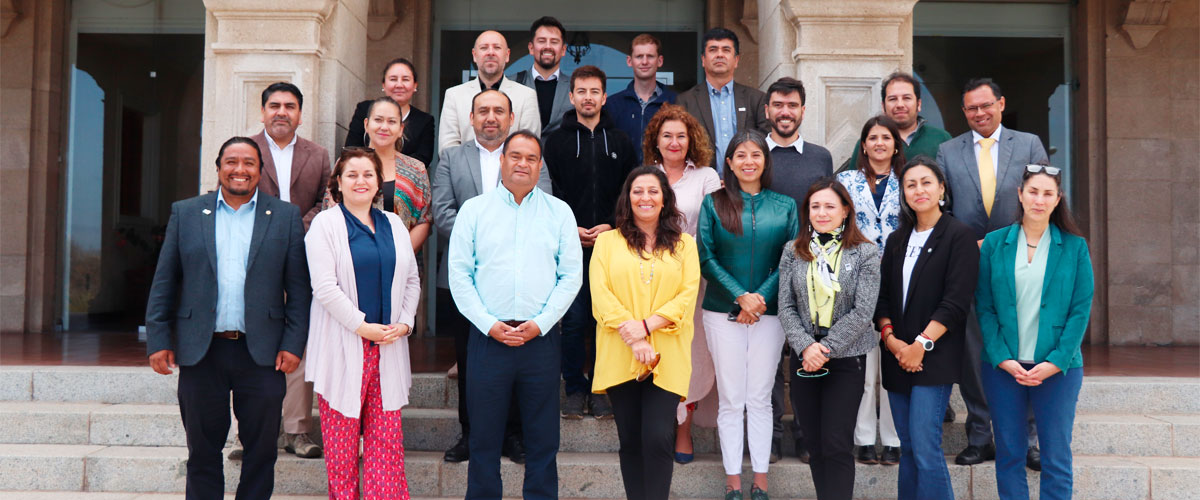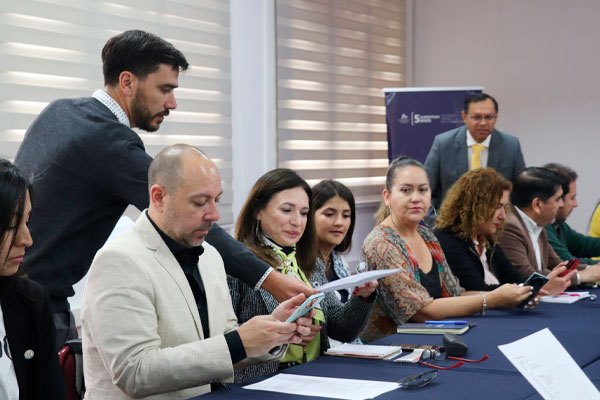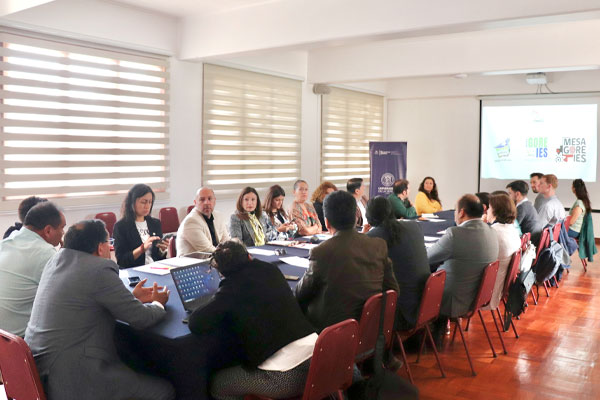- News
GORE-IES Table of the Coquimbo Region meets at the University of La Serena

The Regional Government Table-Higher Education Institutions of the Coquimbo Region held the last session of the year in the Alejandro Covarrubias Room, located in the Central House of the University of La Serena. This instance had the participation of regional counselors and the directors of Environmental Liaison from the different Higher Education Institutions in the region.
Regarding this last session, the Director of Liaison with the Environment and Extension of the ULS, Mg. Carlos Varas Madrid, pointed out that “This is another year of continuous work. Even with the pandemic in the way, this table has continued to maintain its activity. This year has been very significant, among other things, I was able to present the institutional experience at the meeting of Regional Councilors of Chile, and the fact that we have worked for so many years without financial resources involved, and we do it voluntarily, caught a lot of attention. ”.
The objective of the table is to enhance, strengthen and promote link actions between Higher Education institutions and the Coquimbo Region. During this meeting, the vote was carried out to choose a logo for the table, in order to give greater dissemination to the actions that it has for the region.
The president of the table, the regional councilor, Juan Barraza Astorga, expressed that “Participating in this last table where we are choosing the logo of the GORE-IES table is very important for our Regional Council. Having three brilliant presentations leaves us comforted and encourages us to continue working with these tables and seek financing. “We are looking for resources to be able to continue working for our Coquimbo Region, especially with Universities and Technical Training Centers.”
On the other hand, Luis Arias Villa, Director of Liaison with the Environment and Innovation of INACAP La Serena headquarters, pointed out that “As a table, I think there have been interesting advances in terms of conversations. It is never easy to have them to mobilize certain issues, and I think that this year in particular it was possible to have those conversations with different levels of participation, which is very positive and puts certain issues on the table.”
Currently, the table is structured into 3 working commissions with great challenges for the Coquimbo Region. “We have the idea that the Education Commission of the Regional Council activate three relevant things in these subcommittees. The commissions in which we are working are: the regional public ecosystem, where we seek to activate the issue of sustainable development; the private ecosystem, where we are working with the population of Baquedano and Coquimbo, especially with the neighborhood associations to be able to make a diagnosis of needs linked to entrepreneurship and its economic development; and in the territory and community commission, where we are working directly in the area of comprehensive health of Higher Education institutions and the community. Likewise, among the great challenges, the first is to generate resources to be able to carry out more activities. "We are working on that, where we have formed a commission today to be able to look at the search for financing and with what figure we can obtain it," Carlos Varas emphasized.
Pablo Riveros Quiroz, Head of the Social and Human Development Division of the Regional Government, commented that “As the Social Development Division, we have accompanied the higher institution to be able, in itself, to create a region, strengthen ties between institutions and project ourselves into the future. The table has worked together on challenges parallel to the regional development strategy, in which we are all part, and we have identified some milestones, especially on sustainability issues, addressing drought and poverty issues.”
Finally, Carlos Varas highlighted that “All the institutions that are here know about the regional needs. “We are participating in the issue of the regional development strategy, and that has allowed us to see that the actions we have as a higher education institution are in tune with the needs and requirements that the Coquimbo Region needs.”
Source: DIVEULS


